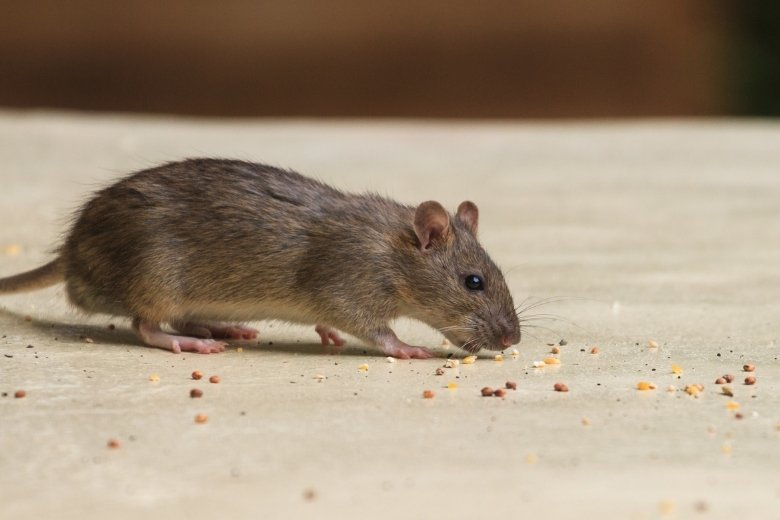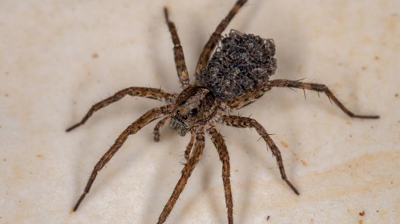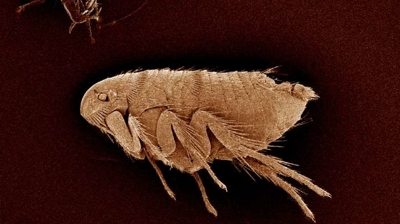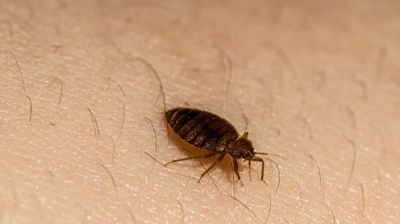
Services

Residential Pest Control
Hiring our professional pest control team for your home is one of the most effective ways to ensure lasting protection, safety, and peace of mind. Here’s why:
- Expertise and accurate identification: Our professionals are trained to correctly identify pest species, their nesting sites, and the underlying causes of infestations. Misidentifying pests can lead to wasted time, ineffective treatments, and potentially worsening the problem.
- Targeted, effective treatments: We use industry-grade products and advanced methods that are far more powerful and precise than over-the-counter solutions. We tailor our treatment plans to your home’s specific needs—whether it’s ants, rodents, termites, or wasps—ensuring maximum effectiveness with minimal disruption.
- Safety for your family and pets: Our pest control professionals know how to apply products safely and responsibly. We follow strict protocols to minimize exposure risks and use eco-friendly or low-toxicity options when possible—something DIY efforts often overlook or mishandle.
- Prevention and long-term protection: Our professional pest control isn’t just about eliminating existing infestations—it’s about preventing new ones. Our experts identify entry points, environmental conditions, and structural vulnerabilities that attract pests and implement preventive measures to keep them from coming back.
- Time and cost efficiency: DIY treatments often provide only short-term relief, leading to repeated infestations and mounting costs. Our professionals address the root of the problem efficiently, saving you time, money, and frustration in the long run.
- Peace of mind: Knowing your home is protected by our experts means you can focus on your life, not on fighting pests. Our regular service plans maintain a protective barrier around your property year-round, reducing the likelihood of future infestations.
Our professional pest control offers expertise, safety, and prevention that DIY solutions can’t match. It’s an investment in your home’s health, your family’s comfort, and your long-term protection.
Commercial Pest Control
Our pest control for businesses differs significantly from our residential pest control services because commercial properties have larger, more complex environments, higher stakes, and stricter health, safety, and regulatory requirements. While both aim to eliminate and prevent pests, the scope, strategy, and level of precision required in commercial settings are often far more comprehensive. Here are some of the differences:
- Scale and Complexity of the Property: Commercial buildings—such as restaurants, warehouses, offices, hotels, or healthcare facilities—tend to be larger and more complex than homes. They often have multiple entry points, storage areas, and food-handling zones, each of which can harbor different types of pests. Our pest control programs for businesses account for these variables and are tailored to the needs of each part of the property.
- Strict Health, Safety, and Regulatory Compliance: Businesses, especially in industries like food service, hospitality, and healthcare, are subject to strict local, state, and federal regulations regarding pest management. Infestations can lead to failed health inspections, fines, or even temporary closures. Our professional commercial pest control includes detailed documentation, monitoring logs, and compliance reporting to meet industry standards and inspection requirements.
- Continuous Monitoring and Maintenance: Unlike residential pest control—which often only requires periodic visits—businesses often need continuous monitoring programs. Our commercial pest control includes ongoing inspections, traps, sanitation assessments, and preventative treatments to detect and address pest issues before they affect operations.
- Industry-Specific Treatment Strategies: Each type of business faces unique pest pressures. For example, food facilities often battle flies, cockroaches, and rodents, while warehouses may struggle with stored product pests. Hospitals and offices, on the other hand, need discreet, low-toxicity solutions to protect people and sensitive environments. We create industry-specific strategies that minimize disruption and prioritize safety.
- Reputation and Customer Perception: A single pest sighting in a business—especially one visible to customers—can damage reputation, lead to negative reviews, and affect revenue. Our commercial pest control prioritizes prevention, rapid response, and discretion to protect your company’s brand image.
- Scheduling and Operational Flexibility: Businesses often require pest control services outside normal working hours to avoid interrupting operations or inconveniencing customers. We provide flexible scheduling and discreet services to fit around business activities.
- Documentation and Reporting: Our commercial pest control programs include detailed records of treatments, product usage, pest activity, and corrective actions—information that’s essential for audits, safety inspections, and compliance verification.
- Preventative and Structural Focus: For businesses, pest control is as much about prevention as elimination. Our professionals conduct structural inspections, recommend exclusion measures (like sealing entry points or improving storage practices), and provide staff education to reduce pest attractants and risk factors.
Commercial pest control is a proactive, strategic partnership that protects a business’s operations, reputation, and compliance. Residential pest control, while equally important, focuses more on comfort, safety, and preventing re-infestation on a smaller, simpler scale.
Integrated Pest Management
Hiring our exterminators who use Integrated Pest Management (IPM) provides significant advantages over conventional pest control approaches. IPM is a science-based, environmentally conscious strategy that focuses on long-term prevention and minimal reliance on chemical treatments. The benefits include:
- Targeted and Effective Pest Control: Our IPM professionals identify the species, behavior, and biology of pests before taking action. By understanding the root cause of infestations—such as access points, food sources, or environmental conditions—we implement precise interventions rather than blanket treatments. This targeted approach increases the likelihood of fully eliminating the pest problem.
- Reduced Chemical Use: Traditional extermination often relies heavily on pesticides, which can pose risks to humans, pets, and the environment. IPM prioritizes non-chemical strategies—such as sanitation, habitat modification, exclusion techniques, and mechanical controls—reserving chemical treatments as a last resort. This minimizes chemical exposure while still maintaining effective pest control.
- Long-Term Prevention: IPM emphasizes addressing the underlying conditions that allow pests to thrive, rather than only treating active infestations. This could include sealing entry points, improving drainage, removing food or water sources, or adjusting landscaping. By removing the factors that attract pests, future infestations are far less likely, reducing the need for repeated treatments.
- Cost Efficiency Over Time: Preventing infestations and reducing repeated chemical treatments through IPM often saves money in the long run. This proactive approach mitigates property damage and reduces ongoing control costs.
- Environmental and Health Safety: IPM reduces the impact on beneficial insects, pollinators, and the surrounding ecosystem. It also limits the exposure of family members, employees, or residents to toxic chemicals, creating a healthier environment in homes, schools, or commercial spaces.
- Customized and Flexible Approach: Every property and infestation is unique. Our IPM-trained exterminators tailor strategies to specific situations, adjusting techniques based on pest behavior, seasonality, and site-specific vulnerabilities. This ensures that interventions are both efficient and minimally disruptive.
- Documentation and Monitoring: A core element of IPM is ongoing monitoring and record-keeping. Our service professionals track pest activity, evaluate treatment effectiveness, and adjust our strategies accordingly. This structured approach provides transparency, measurable results, and a clear plan for maintaining a pest-free environment.
- Regulatory Compliance and Public Perception: IPM aligns with many local, state, and federal environmental regulations and is often favored in commercial, educational, and healthcare settings. Businesses employing IPM can demonstrate responsible, sustainable pest management practices, which can enhance reputation and meet certification or audit requirements.
Hiring our exterminator who use IPM ensures a safer, more effective, environmentally responsible, and cost-conscious pest management program. It moves beyond reactive treatments to a comprehensive, proactive strategy that addresses the root causes of pest problems while safeguarding people, property, and the environment.
Yard Treatments
Hiring our professional pest control team to treat your yard for ticks, fleas, and mosquitoes provides a number of benefits that go far beyond just reducing bites. These pests are not only a nuisance—they pose serious health risks to people and pets, and professional treatment ensures that your property remains safe, comfortable, and enjoyable. Here’s why our professional treatments are the best approach—and how they can also help with other insects:
- Comprehensive Protection Against Disease-Carrying Pests: Ticks, fleas, and mosquitoes are vectors for dangerous diseases. Ticks can transmit Lyme disease, anaplasmosis, and ehrlichiosis. Fleas can carry tapeworms and spread murine typhus and cat scratch fever. Mosquitoes can transmit West Nile virus, Zika virus, and other serious illnesses. Our professional treatments target these pests during their most active breeding seasons and interrupt their life cycles, dramatically lowering the risk of disease transmission around your home or business.
- Customized, Targeted Yard Treatments: Our professionals know how to identify breeding sites, harborage areas, and high-risk zones such as tall grass, shaded landscaping, and moist ground cover. Rather than relying on over-the-counter sprays that provide only short-term results, our licensed technicians apply residual and growth-regulating products designed for long-term suppression. Our treatments are calibrated to your property’s unique layout, vegetation, and pest pressures.
- Integrated Pest Management (IPM) Approach: We don’t just spray indiscriminately—we use Integrated Pest Management strategies to achieve effective and environmentally responsible results. This includes eliminating standing water where mosquitoes breed, treating shaded areas where ticks and fleas thrive, and using professional-grade products that minimize impact on pollinators and beneficial insects. This strategic approach ensures sustained control without overapplication of chemicals.
- Enhanced Comfort and Outdoor Enjoyment: Our regular treatments significantly reduce the number of biting insects, allowing you, your family, and your pets to spend time outside without constant swatting or worry about bites and irritation. This can make patios, play areas, and yards much more usable throughout the warmer months.
- Helps Reduce Other Insects, Too: While our treatments are specifically formulated for ticks, fleas, and mosquitoes, they often have a secondary effect on other nuisance insects that share similar habitats. When you have your yard treated for ticks, fleas, and mosquitoes, you may also see a reduction in gnats and midges, chiggers, certain types of flies, ants and other ground-dwelling pests in treated zones.
- Ongoing Prevention and Monitoring: Our professionals typically provide seasonal, monthly maintenance programs to keep these biting pests' populations suppressed. This proactive approach helps prevent reinfestation and ensures that emerging pest pressures are quickly identified and controlled before they become a problem.
Hiring our professional pest control for your yard delivers health protection, long-term effectiveness, and peace of mind. Our treatments are more powerful, more targeted, and more consistent than DIY efforts—and as a bonus, they often cut down on a range of other nuisance insects as well.
Wood Destroying Insect Services
Hiring our professional pest control for wood destroying insect (WDI) inspection and elimination services is crucial for protecting the structural integrity, safety, and long-term value of your property. Wood destroying insects—including termites, carpenter ants, carpenter bees, and powderpost beetles—can silently inflict tens of thousands of dollars in damage before visible signs ever appear. Here’s why our professional services are essential for wood destroying insects:
- Expert Identification and Comprehensive Inspection: Wood destroying insects often go unnoticed until damage is severe. Our professionals are trained to identify even subtle evidence of infestations—such as mud tubes, frass (wood dust), exit holes, or moisture-related vulnerabilities—that the average homeowner would overlook. We know where to look, including crawl spaces, attics, and wall voids, to detect hidden colonies.
- Accurate Assessment and Documentation: Our professional inspections include a detailed report outlining the type of insects present, the extent of damage, and areas of concern. This documentation is generally required during real estate transactions and serves as proof that your property has been properly evaluated and treated if needed.
- Targeted and Safe Treatment Options: Treating wood destroying insects requires precision and product knowledge. Over-the-counter products rarely penetrate deep enough to reach colonies within wood or underground. Our professionals use advanced techniques and materials—such as soil termiticides, borate treatments, and baiting systems—that effectively eliminate active infestations and protect against future ones, all while minimizing risks to people, pets, and the environment.
- Preventative Protection and Long-Term Savings: Preventive treatments are far less expensive than repairing structural damage caused by wood destroying insects. Our professional pest control services can establish protective barriers and perform routine monitoring to catch any new activity early, providing long-term peace of mind and significant financial savings.
- Knowledge of Building Structure and Environmental Conditions: Our experts understand how moisture levels, soil conditions, and building materials contribute to infestation risks. We often recommend maintenance and exclusion measures—such as correcting drainage issues, removing wood-to-soil contact, and sealing entry points—to make your property less attractive to wood destroying insects.
- Guaranteed Results and Ongoing Support: We provide a re-treatment warranty with our service plans that covers re-treatments as necessary. This ensures your investment is protected year after year.
Hiring our professionals for wood destroying insect inspection and control isn’t just about treating active pest problems—it’s about safeguarding your home or business from potentially devastating structural damage through expertise, prevention, and ongoing protection.
Wildlife Control
Hiring our professional wildlife control is essential for protecting your property, ensuring safety, and addressing wildlife issues effectively and humanely. While it may be tempting to handle animal problems on your own, our professional wildlife control services bring the experience, training, and equipment necessary to manage the situation safely and permanently. Here’s why it’s worth hiring our professionals:
- Safety and Health Protection: Wild animals can carry diseases such as rabies, leptospirosis, and hantavirus, as well as parasites like fleas and ticks. Attempting to trap or remove wildlife on your own can expose you to bites, scratches, or droppings that spread illness. Our professionals are trained to handle and remove animals safely, using proper protective equipment and sanitation methods to reduce health risks.
- Humane and Legal Handling: Many wildlife species are protected by state and federal laws, meaning improper handling, relocation, or extermination can lead to fines or legal trouble. Our licensed wildlife control experts understand the legal requirements for managing each species and use humane removal and exclusion techniques that comply with wildlife regulations.
- Long-Term Prevention: Simply removing an animal doesn’t solve the root cause of the problem. We don’t just trap and relocate animals—we identify how and why they entered your property, seal entry points, and recommend prevention strategies to keep them from coming back. This comprehensive approach provides lasting results.
- Property Damage Mitigation: Animals like raccoons, squirrels, bats, and birds can cause serious property damage—chewing electrical wires, nesting in attics, contaminating insulation, and tearing through vents or siding. Our professionals know how to assess and repair wildlife damage, as well as reinforce vulnerable areas to prevent future infestations.
- Specialized Knowledge and Equipment: Wildlife removal requires more than basic traps or repellents. Our experts use species-specific techniques, professional-grade exclusion materials, and safe deterrent products. We also have advanced tools to locate hidden animals in walls, crawl spaces, or attics.
- Time and Cost Efficiency: DIY wildlife removal often leads to wasted time, ineffective results, or recurring infestations. Our professionals resolve the problem efficiently and correctly the first time—saving you money in the long run by preventing further damage, contamination, and repeated service calls.
Knowing that your property is protected by our trained, certified professionals gives you confidence that the problem has been fully resolved.

Hear From Our Happy Customers
-
"Very Knowledgeable"
The tech that arrived was courteous, professional, and very knowledgeable. He was Great.
- Uerial I. -
"Fantastic & Patient"
Jarvis was fantastic and patient. He answered my questions with an in-depth explanation and addressed all of my areas of concern. Would love for him to be my assigned tech going forward. Well done!
- Yonnette M. -
"Wonderful Service"
Wonderful service. Jarvis is great. Took care of everything I needed. Thank you!
- Henry P. -
"Professional & Considerate"
I’m pleased with Miche services. Jarvis came today. Professional and considerate. Thank you!
- Judy B. -
"Great Communication"
Tech was on time, communication was great, and he accommodated my needs.
- Alonzo W. -
"Exceeds Expectations"
I can’t say enough positive things about this company... The tech that came out, Jarvis went above and beyond my expectations. Thank you guys, I will continue using your services.
- Jake M.



